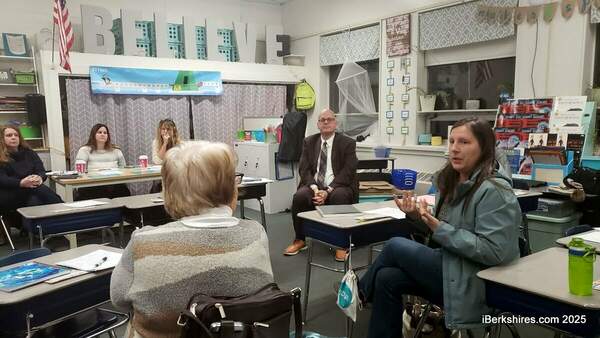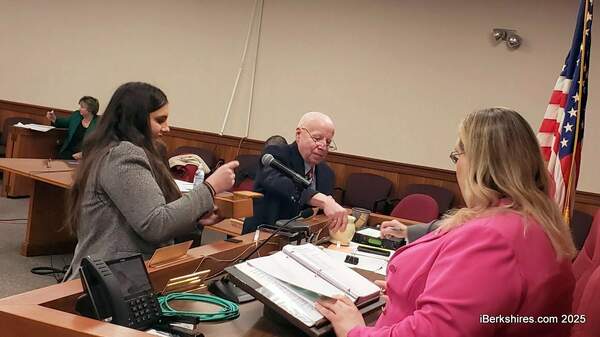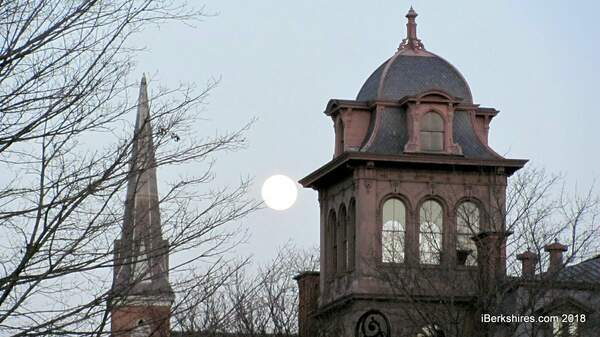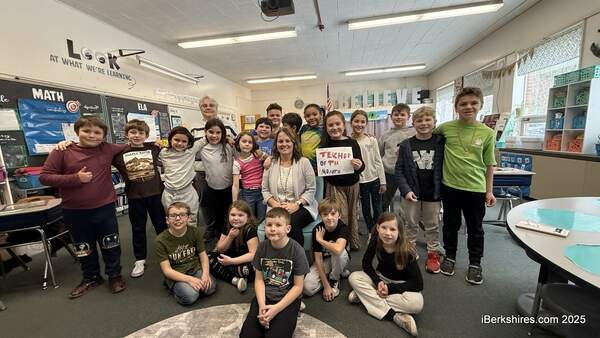

MCLA Academy Prepares Incoming Students for STEM Careers
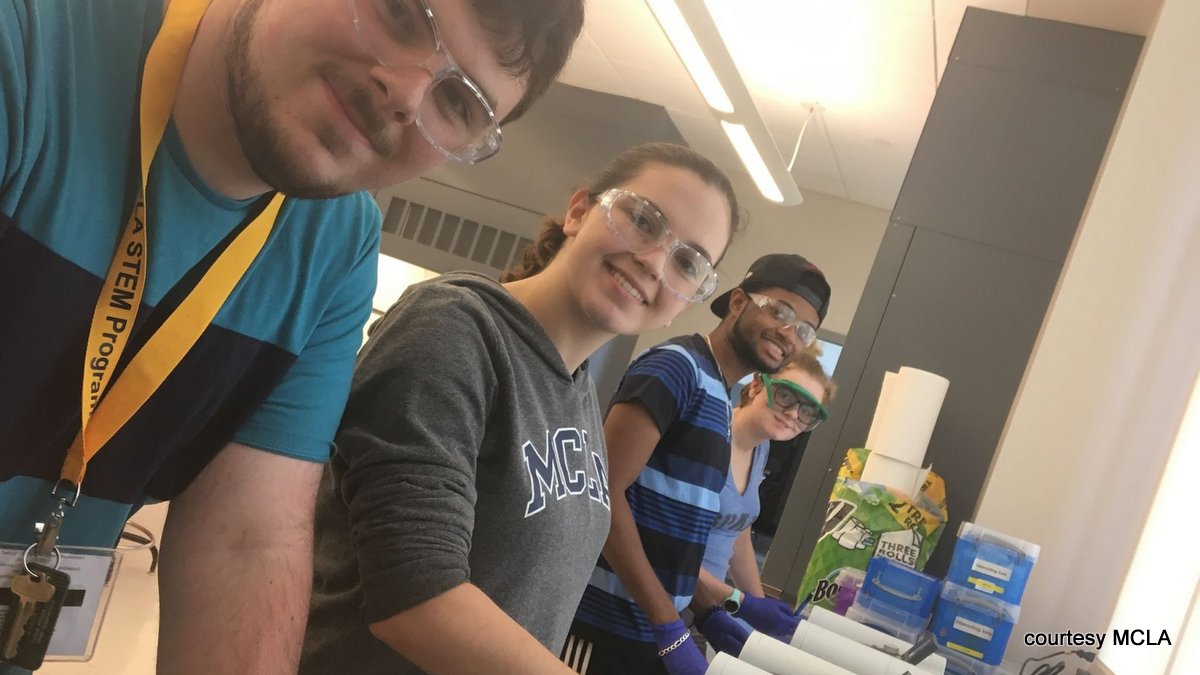
NORTH ADAMS, Mass. — The transition from high school to college can be disorienting, perhaps even more so when you're trying to figure out not only what you want to study but where that study might take you.
Massachusetts College of Liberal Arts has been trying to make the change a little easier for first-year students in its science, technology, engineering and math programs through the Berkshire Bank STEM Academy.
Now in its sixth year, the academy offers five days on campus meeting professors and likely classmates and trying out the labs in the new Feigenbaum Center for Science & Innovation. The program is entirely funded by Berkshire Bank.
"Just going to see all the professors and like seeing what the classes would be like," said Elizabeth "Liz" Kuzmech, a recent Monument Mountain Regional High School graduate, earlier this month. "That was really interesting and getting to see other students and getting to know the people you're probably going to have classes with is really helpful."
Angelie Castor, a graduate Randolph High School, said the academy was fun, both the educational aspects and the meeting potential classmates.
"You interact with them and you know in the fall there's a group of people waiting you already know and that you are going to like," she said. "I have friends, like 'hey Liz, it's so good to see you again.'"
In addition to exploring potential STEM fields, taking a tour of the SUNY Polytechnic Institute's College of Nanoscale Science and Engineering in Albany, N.Y., the incoming students also got to met with people working in the fields they're considering and learned that it's not always a straight path between college and career.
Monica Joslin, dean of academic affairs, was a case in point, going from one discipline to another and then from teaching to administration.
"I started at the university level in Oslo as a chemistry major then got a taste of biology," she told a roundtable gathering in the science center's main lobby. "I taught biology here for many, many years."
Academy director Carolyn Dehner, an associate professor in chemistry, said the program is open to interested students -- both freshman and past participants who return as "STEM fellows" to guide their newest classmates.
"I've been in the program for three years being a student and two years as a coordinator," said fellow Matt McKinney. "It helps you to get to know people before coming to campus, other than orientation, which is only one night, it's kind of a closer bond ...
"That's not exactly what being on campus is like ... but it does give a general jist of what life will be like."
Martha Garcia said she was a first-year in the program two years ago.
"This year was hired as assistant coordinator," she said. "It's an excellent experience for students and it gets them to know campus a little more."
Participating faculty here Peter Hoyt, athletic training; Anne Goodwin, biology; Rob Harris, chemistry; Dan Shustack, environmental studies; Chris Thomas, math; Bridget Gormalley and Kebra Ward, physics; and Thomas Byrne, psychology.
Dehner said students who have participated are eager to become STEM fellows. It offers a leadership opportunity and offers a way "to pay it forward," she said. It's also way newcomers can find out from their predecessors that their STEM choice of study is right for them. Garcia said she'd tried a couple different majors before "coming back."
"It builds a little community so when they arrive they feel they're a part of something and they will hopefully stay in STEM," Dehner said. "You have a community ready to go."
The academy's roundtable event also allowed students -- freshmen and fellows -- to question professionals working in their considered fields of study.
David Armet of Williamstown Physical Therapy told them he might be unusual because he knew from the start he wanted to work in physical therapy. In addition to his practice, he is a physical therapy equipment entrepreneur.
He spoke about his experiences, particularly how he evaluates potential interns and employees -- don't leave off that part-time work at Panera, he recommended, because it could show you know how to get along with people and accept responsibility.
"Don't be afraid to lead with yourselves and your academics will shine through," he said.
The dinner was a way for the students to see real-life applications of what some people have gone through and maybe they have better ideas of what they might go through, said Dehner.
"The classroom is one thing but learning about people's actual career paths aren't linear, that you zigzag," she said. "You don't think about that in the classroom ... it's that side of mentorship that we don't always provide or maybe is not our place provide."
Tags: MCLA, STEM,

(3).jpg)
